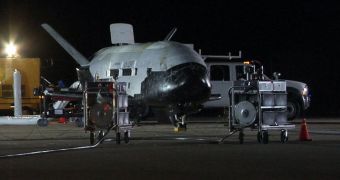The next few decades will undoubtedly see an enormous rise in the number of space exploration missions that will be conducted by national space agencies, international organizations, and corporations. Experts are currently insisting that a set of guidelines for space conduct be created.
Such a document is absolutely necessary if we are to ensure that some of the most basic necessities associated with exploring our solar system and beyond are met.
For example, it's very important to allow for future spacecrafts trying to exit Earth's orbit to actually have a chance of getting out to space. At the rate we're polluting low-Earth orbit (LEO) with junk, no large vessels will be able to pass through in a couple of decades.
There are literally tens of thousands of pieces of space junk whizzing through LEO and beyond, and most of them come from discarded or spent satellites, pieces of rockets and adjacent components.
Establishing a global Code of Conduct for space exploration would set the legal framework for various organizations and groups to conduct their investigations in a sustainable, non-harmful manner.
But before experts can establish what measures need to be taken in order to achieve this objective, people need to agree on what can be described as misconduct beyond the final frontier, Space reports.
“I imagine that anything that creates another huge debris cloud because of either negligence – be it not venting a fuel tank, causing it to explode once in space, or intentional action such as an anti-satellite test – would qualify,” explains Marcia Smith.
The expert is the founder and editor of SpacePolicyOnline.com, and also a veteran space policy analyst in Washington, DC. In her view, space sustainability is a key aspect of the issue.
Experts agree that the jamming or destruction of satellites during peacetime should also not be permitted under any pretense. China demonstrated its anti-satellite technology two years ago, and the destruction of one of its spacecraft caused a huge plume of debris to spread in LEO.
“There has been commendable progress on defining what might evolve into a broadly acceptable Code of Conduct for safe and responsible space operations,” explains the director of the Space Policy Institute, Scott Pace.
He holds an appointment as a professor of the practice of international affairs at the George Washington University (GWU) Elliott School of International Affairs, in Washington, DC.
But the main thing that such a document needs is an international agreement, or at least the signatures of states that are most actively involved in space programs – such as the US, Russia, China, the European Union, India, Canada and Japan.

 14 DAY TRIAL //
14 DAY TRIAL //